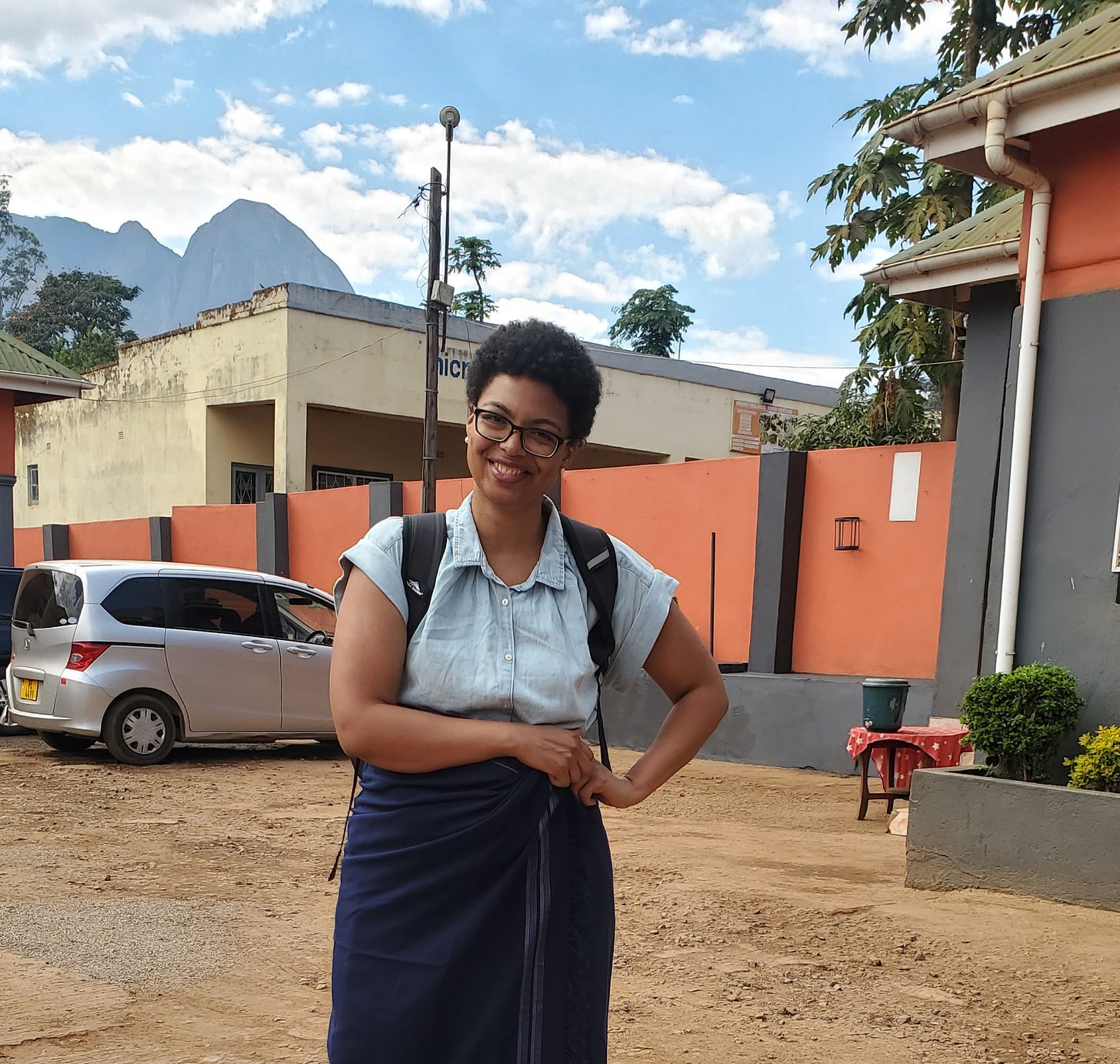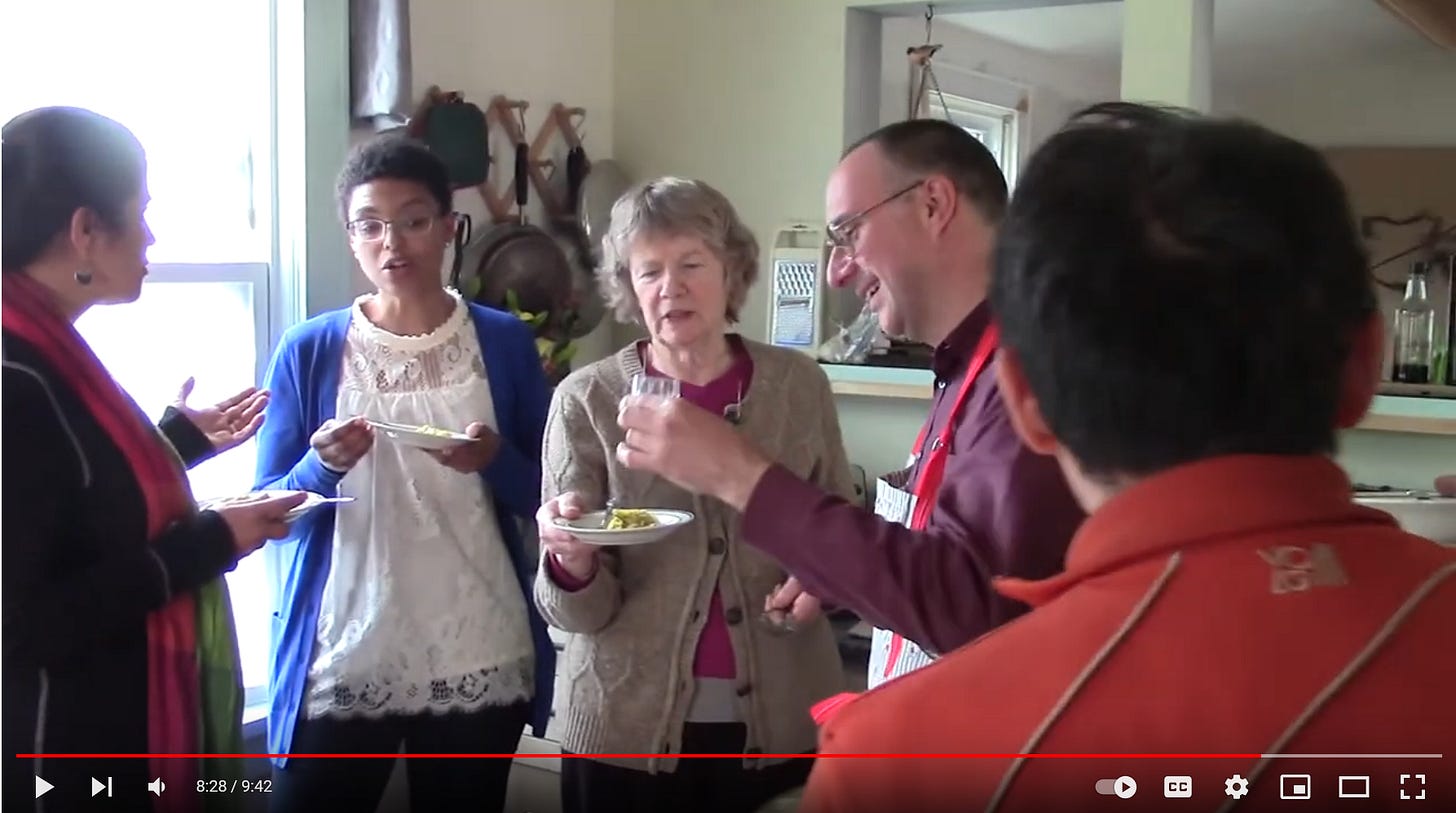I’ve mentioned my affection for baristas in the past, but it’s only recently that I’ve started thinking about what they do. Are you a coffee drinker? Let me ask you this. Do you know how grind size affects flavor? Do you appreciate the nuanced relationship between your water’s mineral content and the brew’s acidity? Do you even know what a Proportional Integral Derivative is? I definitely don’t. Your local Starbucks employee may or may not. But what’s cool to me is that every barista, without exception, is climbing their way up toward this impossibly high skill ceiling, which, for us, just boils down to our morning routine.
Get it? Boils down.
You would never guess how hard Brian’s working, just talking to him. He’s a pretty down-to-earth guy. Actually, he’s an absurdly charismatic, hyperverbal, and energetic guy. But he’s also the kind of guy who calls you brother even if you don’t know him. Being nice is his job, yes, but I wonder if it might also be his nature.
But I hadn't come to Rochambo to see Brian. Or even to browse the selection of interestingly named teas. (Honey Bush, Harvest Time, Evening in Missoula) The week before, I worked out a day to meet with Anika (yes, that Anika) and showed up early to leave enough time to towel off all the sweat I’d accumulated on the humid walk over.
I’m not particularly good at giving interviews. Aside from sweating a lot, I tend to talk about myself too much and lose the thread of conversation easily. I’d only convinced myself to do it at all because I’d had this great idea for a Grape Eater piece. It was going to be about one of my favorite artists, Paul. That’s right, the very same 2014 Whitney Biennial, 2023 Milwaukee Artist of the Year, New York Times’ Five Accounts to Follow on Instagram, Paul. Though my idea is less about him, actually, and more about a project of his, Milwaukee Kitchen.
Milwaukee Kitchen is--how can I explain it? Imagine a public-access channel rendering of Mister Rogers’ Neighborhood but with more synth melodies and multilingual pets. I guess I’ve always liked it for its weirdness, but at the same time, its earnestness. It’s about community, but not in a way that feels corny. It doesn’t simply perform an idealized notion of social harmony, it builds it piece-by-piece, right in front of you, right in front of the camera.
So I told Paul about my idea. He was more than generous.
Three weeks later, there I was, sweating at my little table, drinking an iced green tea lemongrass thing, looking over my notes. Anika was up the stairs before long, apologizing for her latte, whose impressive iceberg of whipped cream bobbed as she set it on the table. She said it was Brian who talked her into the whipped cream, which seemed probable.
I shut my laptop and opened it again, feeling too vulnerable without the screen between us. Maybe it was the caffeine, or first-meeting jitters, or the fact that it was just five days before her flight to Malawi, but our conversation started out scattered. We jumped from topic to topic. Coffee, politics, the neighborhood, her appearances on Milwaukee Kitchen. She told me about her work as a professor of Africology at UWM, which she likes but which sometimes leaves her missing human contact. She told me about her history of finding and losing new hobbies, citing a painting class, drumming class, and Bollywood dance class. They’re her antidote to the rigors of an academic life.
The talk felt more natural as we each learned who we were talking to. That’s usually how conversation works, but it can be hard to appreciate until it’s happened. I asked her about the trip she was leaving for that Friday. It’s an extension of her academic interest in religion, spirituality, rumors, gossip, and urban legends. In Malawi, and much of Africa, she says, beliefs surrounding spirits and places are intricately intertwined. She’ll be visiting sacred sites across the region. In fact, she’s there now, as you read this, talking to people and gathering stories. Ultimately, her goal is to tie these local narratives to global concerns of forestry and conservation. Though for now, she’s keeping her mind and ears open, approaching the work with curiosity above all else.

If I had to guess, I’d say it’s the process Anika enjoys most. I get the feeling she could talk all day about what she’s seen traveling, all that she’s heard and who she’s talked to. She describes herself as an introvert but it’s clear she loves an adventure. She’s drawn to the different and diverse, and I bet she’s an equally skilled listener and talker.
I’m much the same, so it’s easy to empathize with the apprehension for academia. Anika knows, someday soon, her whole adventure and all the stories and experiences will get extruded through a grueling peer review process. There will inevitably be parts that don’t fit, experiences that don’t quite translate to paper. It’s a compromise, and like all compromises, it leaves parts out to make things fit. I think it’s the reason a lot of people, myself and Anika included, make art. It’s nice to have the freedom to focus more on the process, less on the result.
However, in the course of our conversation, Anika told me, with no irony whatsoever, that despite the painting, drumming, and dance classes, she in no sense considers herself an artist. “I don’t expect to make money off my piddling paintings,” she said.
My first instinct was to inform her that this, the feeling of not being an authentic artist, is one of the most universal qualities artists share. That 99.9% of artists who have ever lived never made a living or earned much recognition for their work.
But then I thought, no, Anika doesn’t need my validation. She’s already enjoying herself. So I sipped my drink and continued listening.

Since her first appearance in 2018, Anika has been featured on, by my count, three episodes of Milwaukee Kitchen (2, 7, and 10). She looks forward to coming back. On screen, she’s a natural fit for the tidy and gregarious academic-type, eager to uncap every spice bottle and smell, or share a cilantro fact. She won’t fret over singing in front of the camera and keeps smiling through the whole song. She takes to conversation with the others naturally, and I don’t think it’s just the editing.
Real conversation is what drew her to Milwaukee Kitchen in the first place. That’s the term she used, real conversation. It’s a funny way to describe a staged cooking program, but I get what she means. Watching the show, you get the feeling it’s made for her enjoyment as much as for ours. You can tell she’s having fun. The show wouldn’t work if she wasn’t.
This, the fun, is the result of a well-considered process. She and the rest of the cast are given a loose script, but for the most part, they’re free to do or say whatever they want. It’s brave of Paul, but also essential to the work. Try convincing your friends to be filmed for YouTube, and you’ll discover just how scarce fun can be. Crucially, Paul is not an auteur. The point is not to realize his artistic vision. The point, as far as I can tell, is the same as the seven-year-old who collects a bunch of different bugs, puts them in a jar, shakes it, and watches to see what they’ll do. Paul’s process is a little more gentle than that, but basically the same. It’s driven by curiosity.
And just like that, hey, I have a whole theme going for my big Grape Eater piece. Curiosity. Real conversation. Process. Wow. Sometimes I’m amazed by how easily art makes itself, if you let it.
I waved to Brian on the way out, feeling pretty good about my talk with Anika. But thinking it over awhile, I couldn’t help but wonder whether an actor like Marcie (yes, that Marcie) felt the same as she did. Was real conversation what Marcie found on Milwaukee Kitchen, or was it something a little different? I wouldn’t be able to say for sure until I met her at Paul’s home later that week. I’ll tell you about it soon.
On Milwaukee Kitchen is a five-part series where I speak to the cast of a locally-produced made-for-YouTube cooking program. If you haven't checked out the show for yourself, I would recommend looking at their most recent episode, Sweet Sourdough.







Love the work and stories you feature here, and how your own curiosity comes through in your conversations and writing. Can't wait to read the next part!
Thank you for these. Milwaukee Kitchen fan and it’s great to get some back story.